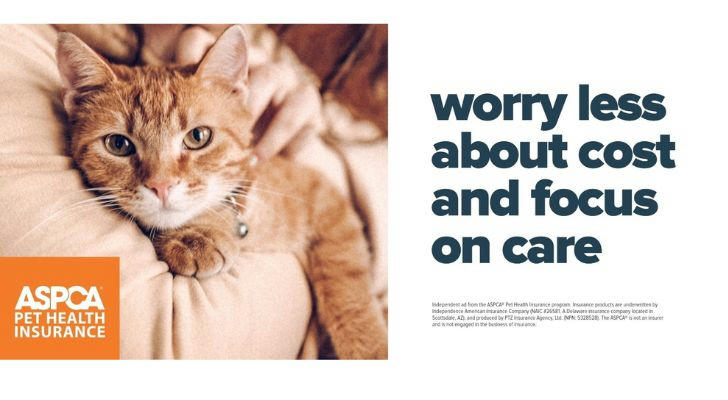ASPCA Pet Insurance: Which Pets Does It Suit? Understanding Your Pet Insurance Options
As pets increasingly become family members, more and more pet owners are paying attention to their pets' health and well-being. Whether due to accidental injuries, sudden illnesses, or routine health management, pet insurance provides strong protection for pet owners. In the United States, ASPCA Pet Insurance has become a top choice for many pet owners due to its comprehensive coverage and flexible insurance plans. So, which pets is ASPCA Pet Insurance suitable for? Through some real-life examples, we will help you understand how to choose the best insurance plan for your pet.

Suitable for Pets of All Ages One of the standout features of ASPCA Pet Insurance is its flexibility. Whether your pet is a young puppy or an elderly cat, you can find a suitable insurance plan. The pet’s age does significantly impact the insurance cost, with younger pets generally having lower premiums. However, even for older pets, ASPCA offers targeted coverage to ensure they receive comprehensive treatment and care as their health issues increase.
Case 1: Tucker the Puppy’s Insurance Choice
Tucker is a one-year-old Border Collie, and his owner Ashley decided to purchase pet insurance for him. Since Tucker is still young, Ashley chose ASPCA’s Accident and Illness Insurance, which covers treatment for injuries and common illnesses. Ashley pays around $30 per month, ensuring that Tucker receives comprehensive medical support whether he faces an accident or illness in the future.
Advantages: Younger pets are generally in better health but still face risks of accidental injuries. The Accident and Illness Insurance offered by ASPCA ensures that young pets are fully covered in case of unforeseen events.
Suitable for Middle-Aged and Older Pets As pets age, they may face more health issues, such as arthritis, heart disease, diabetes, and other chronic conditions. Therefore, older pets typically need more comprehensive medical coverage. ASPCA Pet Insurance provides targeted protection for older pets, helping owners reduce the high medical costs associated with treating these age-related health issues.
Case 2: Molly the Cat’s Insurance Choice
Molly is an 8-year-old Maine Coon cat. Her owner Rachel noticed that as Molly aged, her activity level decreased, and she sometimes showed signs of discomfort. Rachel opted for ASPCA’s Accident and Illness Insurance, along with an advanced plan that covers chronic illnesses. This plan not only covers treatment for common diseases but also includes issues that can arise with aging, such as kidney disease and heart disease.
A few months later, Molly was diagnosed with mild heart disease. Fortunately, Rachel’s insurance plan covered most of the treatment costs, significantly easing the financial burden.
Advantages: Older pets require more medical attention and long-term treatment. ASPCA’s advanced protection plans effectively cover the high costs of treatment, ensuring that older pets’ health is continuously maintained.
Suitable for Certain Breeds of Pets Some pet breeds are more prone to specific diseases due to genetic factors. For example, large dogs are more likely to suffer from joint issues, and brachycephalic breeds may have breathing problems. ASPCA Pet Insurance offers personalized coverage for these high-risk breeds, ensuring that pets with breed-specific health concerns receive timely treatment.

Case 3: Spartan the Bulldog’s Insurance Choice
Spartan is a 4-year-old English Bulldog, and his owner John chose to buy ASPCA’s Accident and Illness Insurance for him. Due to the breed’s susceptibility to respiratory problems, Spartan had visited the vet multiple times for breathing issues even at a young age. To better protect Spartan’s health, John chose an add-on plan that specifically covered respiratory diseases. This insurance not only covers common illnesses but also provides specialized coverage for health issues specific to his breed.
During a change in seasons, Spartan’s respiratory symptoms worsened, and after a check-up, the vet recommended treatment. Fortunately, John’s insurance plan covered most of the treatment costs, making the process much smoother.
Advantages: Pets of specific breeds may face more health risks. ASPCA Pet Insurance helps pet owners address these potential health issues through custom insurance plans, ensuring that pets’ medical needs are promptly met.
Suitable for Healthy Pets and Pets with Pre-Existing Health Conditions ASPCA Pet Insurance’s flexibility extends to covering both healthy pets and those with pre-existing health conditions. For healthy pets, owners can choose standard Accident and Illness Insurance, while for pets with a history of illness or specific health needs, they can select advanced coverage or chronic disease management plans. This variety of options allows pet owners to choose the most suitable insurance based on their pet’s actual needs.
Case 4: Abby the Rabbit’s Insurance Choice
Abby is a 3-year-old Dutch Lop rabbit. Her owner Tom bought ASPCA’s Accident and Illness Insurance for Abby when she was young. One day, Abby ingested something she shouldn’t have, causing a gastrointestinal issue that resulted in $1,000 in treatment costs. Fortunately, Tom’s insurance plan covered emergency treatment, and Abby recovered quickly without placing a heavy financial burden on Tom.
Advantages: ASPCA Pet Insurance plans cover a variety of pets, including non-traditional pets such as rabbits, birds, and others, allowing pet owners to provide necessary protection for these types of pets as well.
Conclusion: Choosing the Right Insurance Plan for Your Pet From the examples above, it is clear that ASPCA Pet Insurance is suitable for all kinds of pets—whether a young and lively puppy, an elderly cat requiring special care, a common dog or cat breed, or even more unconventional pets like rabbits or birds. ASPCA Pet Insurance ASPCA offers personalized insurance plans for each pet, ensuring that pet owners can choose the most appropriate coverage based on their pet’s age, breed, health condition, and lifestyle.

Pet insurance not only provides coverage for medical expenses but also brings peace of mind to pet owners. When choosing ASPCA Pet Insurance, owners should consider their pet’s age, breed, health status, and actual needs to select the right plan, ensuring that their pet receives optimal health protection at every stage of its life.
